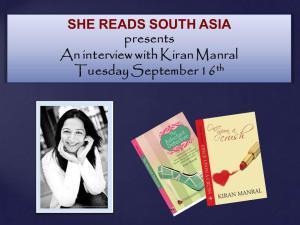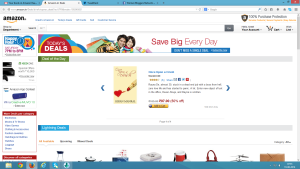Kiran Manral's Blog, page 55
November 18, 2014
Because I said so (My post for Parent Quotient this week)
The other day, I had an out-of-body experience. I was giving my son a little speech which began and ended with “Because I said so…” and suddenly heard my mother talking in my voice.
I had morphed into my mother.
God knows, my mother has been a wonderful mother. Except for that phase when I was between 12 and 18 and realised that something had happened and my wonderful, kind, adoring mother had somehow been changed into a, dictatorial kind of person whom Hitler would be proud to take a correspondence course from. And three guesses as to what her favourite words during this phase of my life were? Yes. “Because I said so.”
“Because I said so,” was often followed, with the briefest pauses, by “Or else.” By the time she got to the or else, I had pretty much weighed in the pros and cons of disobedience and had come to a decision. Often I wouldn’t let her get to the ‘Or Else’. I would debate the ‘Because I said so’ heatedly. The law bench lost a promising talent when I chose English Literature as my major is all I am saying, since it is not seemly to praise one’s skills in public.
The apple does not fall far from the tree I note, as my son replies to my ‘Because I said’ so. Hot around the collar, his face flushed with excitement and a fair bit of anger, I found within me a growing temptation to slam doors, say that this discussion was ended and tell him he was grounded for a week, and god help him if he so much as laid a finger on the remote control and left those textbooks whining piteously for him to cast a stray gaze in their direction.
Read the rest here

November 14, 2014
On the advisory board of Literature Studio, Delhi
November 13, 2014
The hills are alive
(This article appeared in Business Standard here)
It was a heaven-sent opportunity for litterateurs – a trip up in the Himalayas for informal discussions on some matters facing authors and books, readings, and chats with peers. But there was a pleasant surprise too — the insightful observations and heartfelt musings of half a dozen local schoolchildren on issues from female infanticide to corruption that left the writers, established and upcoming, awestruck.
The writers’ retreat at boutique resort Te Aroha, which means a pleasant place in New Zealand’s Maori language, in the hill town in Nainital district in the first week of November was the brainchild of Sumant Batra, corporate and policy lawyer and avid collector of the minutiae of Indian art and daily life, and was intended to lay the groundwork for a literary festival in the Kumaon hills in November next year.
Participating in the panel discussions on issues like whether printed books and the art of bookmaking have a future, the benefits and shortcomings of social media for authors, and the battle of languages and the status and quality of translations, especially into various Indian languages, were novelists Kiran Manral and Vineetha Mokkil, poets Sudeep Sen (English), Amir Or (English/Hebrew) and Geet Chaturvedi (Hindi), thriller writer Kulpreet Yadav, and Cordon Bleu chef-cum-writer Michael Swamy.
The discussions, curated by Literature Studio founder Vibha Malhotra and Delhi University assistant professor Sakshi Chanana, were further enlivened by the participation of four winners of a creative-writing contest – short-story writers Saritha Rao (English) and Rashmi Nambiar (Hindi), bilingual author Maulshri and poet Supriya Kaur Dhariwal, who is just out of her teens but has made quite a name for herself.
The discussions, against the backdrop of the picturesque, snow-clad Nanda Devi mountain range, threw up many views – provocative and contentious at times but incisive and illuminating too, frequently moving beyond books, the forms in which they are read and the languages in which they are written to encompass the art and craft of authorship, the mind, creativity, intention and objectives of the writer and ultimately to the wider aspect of literature in its political and social context and balancing its paramount objectives of educating and entertaining.
While the debates stimulated the intellect, the late evening readings by the assembled authors were an aesthetic tour de force, taking up the pleasure of reading several notches. They also offered an unparalleled insight into the creative process by identifying the stress the various creators laid at particular telling words and sentences, be it prose or poetry, and the evident pride of the progenitors at the reception their works evoked.
But the real show-stealers were the high-school students invited to read their work and interact with the authors.
In a place where schools are not just distant in space but elevation too, the task of learning competes with arduous household chores, and the facilities their counterparts in the cities of the plains take for granted are lacking, the five girls and a boy displayed a level of sensibility and creativity which their peers would envy.
Whether it was a touching plea of a girl child to be allowed to live and study, a view on environmental degradation of fragile eco-systems of the hills, or the bane of political chicanery and corruption, they left their accomplished audience gasping in admiration.
The boy, who had accompanied his sister, used the time they were waiting to pen down his own “Audacity of Hope” – a simple but moving tale of a boy rising above his circumstances to achieve his desire in life.
If this is a sample of the potential languishing unrecognized in the Kumaon hills, it is definitely high time the region had its own literary event.
(Vikas Datta can be contacted at vikas.d@ians.in)

November 10, 2014
A getaway in the hills
 Originally posted on Fortytwoandcounting:
Originally posted on Fortytwoandcounting:
Last week, a group of writers and I were part of the Te Aroha Literature Studio Writer’s Retreat in Dhanachuli, near Mukteshwar. There will be more written about the discussions and the learnings from that retreat eventually, but because I am dead lining right now on something that must be submitted in a couple of days, I leave you with this. Some photographs of the lovely venue and the interesting and wonderful mix of folks that were part of this retreat.
I must add, a huge thank you to Sumant Batra, the committed patron of the arts who hosted this fabulous retreat at his wonderful luxury boutique hotel Te Aroha, to Vibha Malhotra, vibrant and passionate about writing and literature, the founder of Literature Studio, who kindly invited me to be part of this retreat. Also to Dr Sakshi Chanana for moderating the lovely panel discussion I was part of…
View original 357 more words


September 11, 2014
Live Author Chat with Good Reads South Asia on September 16, 2014 at 7pm
We are delighted to announce that we will be talking to Kiran Manral (FB chat on the She Reads South Asia page and a TwitterChat using #SheReadsSA) at 2:30 pm GMT on Sep 16th, 2014 (7 pm IST, 6:30 pm PST, 9:30 am EDT).
For those who don’t know her, please check out her author Goodreads author profile (https://www.goodreads.com/author/show/5447776.Kiran_Manral).
Please join us for what promises to be a fascinating discussion.
Register here: https://www.facebook.com/events/1474581982794605/


September 9, 2014
In Storizen Magazine’s September 2014 issue
August 18, 2014
Amazon India’s Deal of the Day
My second novel, Once Upon A Crush, is Amazon India’s Deal of the Day just for today at Rs 97 for the paperback and Rs 59 for the Kindle.
Here’s what the book is about:
Rayna De, stuck in a dead end job with a boss from hell, zero love life and the big 3-O looming large on the immediate horizon, has started to panic a bit. No, make that panic a lot. Enter new object of lust in the office, Deven Ahuja, and Rayna is overpowered by inappropriate visions of Cupid aiming his arrows straight into her heart, with turtle doves doing their billing and cooing act in the backdrop. Alas, Deven is completely out of Rayna’s league despite the contradictory messages he seems to be sending out, and is, as decreed by page three supplements of the city newspapers, the man in the life of the gorgeous, light eyed model-turned-actress Sharbari Raina. As Rayna battles with her crush, shaky employment status and dithers about signing up for domesticity with the approved-by-her-parents Sid Bose, of the multi zero pay package and three-bedroom house, she discovers that life has its own plans…
The book is a fun read, and here’s what folks have to say about it and my writing.
“…after a long time, I have come across a book which kept me restless till I completed it. The book really ends in the last two pages, rather than many contemporary books whose conclusion one is able to understand beforehand.” – Sudatta Mukherjee
“…the author narrates the story in a refreshingly straightforward manner and infused with doses of wit and humour.” –b00k r3vi3ws
“Manral interjects her story with bon mots at the most unexpected times and that aspect of her writing is what I enjoyed the most in this book as well at her first book, The Reluctant Detective.” –Shunali Shroff
“Kiran’s writing style is witty, humorous and makes you think. She has a penchant for making even the most mundane, interesting because of the razor sharp observations, served with a dollop of dead-pan humour.”
Preeti Shenoy, bestselling author
“I enjoy reading Kiran’s books. The genre of easy reading and happy reading with inevitable style, she keeps you hooked on the book from the first page to the last.”
Tisca Chopra, actor
Here’s the link to order the book:
http://www.amazon.in/Deals/b/ref=nav_topnav_deals?ie=UTF8&node=1592905031
Hope you enjoy it.


August 15, 2014
My story begins with my mother’s…
 Originally posted on Fortytwoandcounting:
Originally posted on Fortytwoandcounting:
My story begins with my mother’s story, as my son’s story will begin with mine.
August 13, 2014
This article is part of the #BeingaModernIndianWoman archive, which is being launched on 15th August on Indian Independence Day. This storytelling initiative celebrates womanhood and freedom of (responsible) expression, and it’s a stepping stone to further economic opportunities for women in India. Please visit http://beingamodernindianwoman.in/ and facebook.com/beingamodernindianwoman for more information.
When I was nine, my father passed away. This was 1982. In the morning, he set off for an office picnic. In the evening, they brought home his dead body. A sudden heart attack, they said. There is nothing crueler than the death of someone you haven’t had a chance to say good bye to, I still dream of opening the door to my father standing outside, older, greyer, but undiminished by death and the afterlife, I dream of an opportunity to…
View original 1,948 more words


August 13, 2014
The Freedom Chronicles- What Freedom Means To Indian Women- In the News Minute
By Aekta Kapoor
http://www.thenewsminute.com/lives/167#.U-wzh4xHPOk.blogger
Freedom is subjective; it has no one definition. As a citizen in a committed democracy, it may be the right to walk down unaccosted to the local polling booth and vote for the election candidate of your choice. As an employee in a developing nation, it may be the right to go home on time and be paid fair wages for your work. As a young person in a conservative land, it may be the right to choose one’s own profession or partner without having to battle an army for it. As a child anywhere, it may be the right to an education and to be brought up without abuse or neglect. As a husband or a wife, it may be the right to one’s personal space – without having to tussle over the blanket.
Whatever your political stance, private values or public choices, freedom has an intensely personal connotation for all of us. We speak to Indian women from different walks of life and from all across India on what freedom means to them.
Eina Ahluwalia
Conceptual jewellery designer
Kolkata
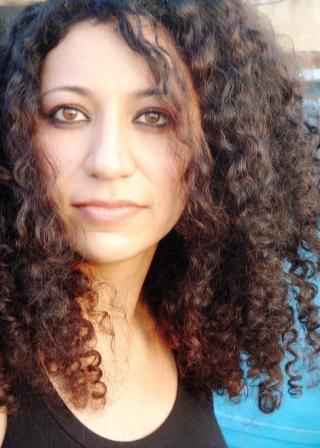
Freedom, to me, comes in many formats. Physical freedom means to be able to roam our world as we please, go where we want, whenever we want, wearing whatever we want, without a threat to our person or our lives. Mental and emotional freedom means to be free of family pressures and societal norms, and truly create our lives exactly as we please. Freedom of opportunity is to have equal rights to education, career, relationships, and positions of power, irrespective of gender, caste and sexuality. We as a country are far from freedom on all counts, and the oppressor is our mindsets. Things are changing slowly, for the better and the worse. Maybe this is the storm before the calm.
Latha Sunadh, Managing Editor, POPxo.com
Writer, thinker and perpetual dreamer
Mumbai
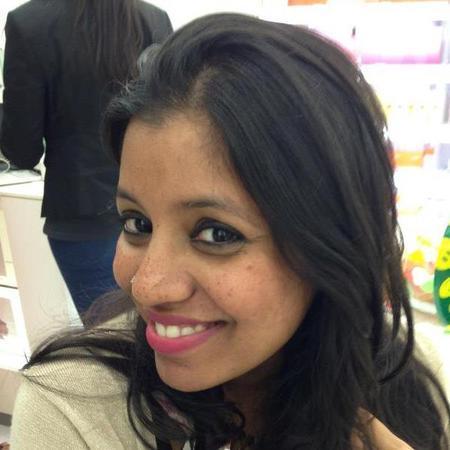
Freedom for me as a woman and as a professional is about making my own choices and the world letting me live with them. I’m not talking about the good choices, the pat-on-the-shoulder choices, the “always right” choices. I’m talking about terrible choices, the ones who might not work, the ones that might not make sense and mostly, the ones that will help me make the right choices in the future by being stepping stones. And only, if only, the world will let me be happy with my own choices without pointing to the other side and calling it green.
Sharanya Manivannan
Poet and writer
Chennai
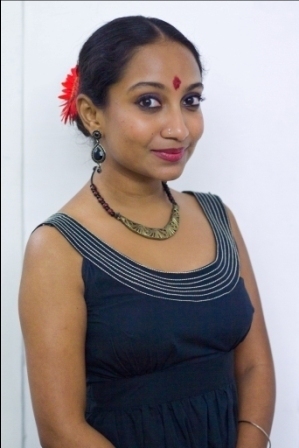
Freedom from fear, freedom to love, freedom to walk away, freedom to draw my lines, freedom to make art, freedom to share, freedom of access, freedom from questions, freedom to question, freedom to be silent, freedom to have the last word – every one of these is a freedom that I try to negotiate, every day, in all my capacities and identities. I don’t hold my identity as ‘Indian’ over any other, as I spent most of my life in other countries. And I hold each individual’s personal autonomy to be a self-evident truth, always.
Kiran Manral
Author and school-gate mom
Mumbai
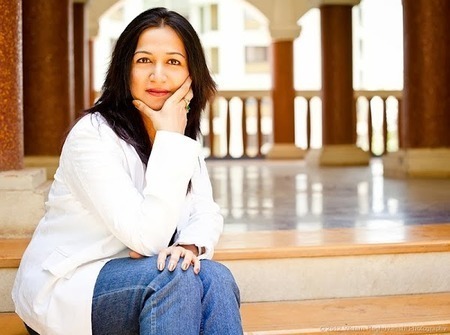
To me freedom is the ability to think for myself, to do what I wish of my life, to spend my time as I choose, judiciously or otherwise. As a woman, freedom to me is the ability to earn my living, to choose whether I want to be a mother or not and at what point in my life, to choose my life partner, to be able to step out of my home at any time and know that I will be safe. As a writer, freedom to me means putting down words as they come to me, without scratching them out, toning them down, worrying about how they might be interpreted or misinterpreted. Freedom to me is still ephemeral, still a destination, still a journey.
Nadika N
History buff, editor and filmmaker
Chennai
There are many freedoms given to us. As long as you conform. But a freedom that a set of people do not get is the freedom to be themselves. If you are man or woman, your freedoms are yours to exploit or give away. Yes, women in India aren’t exactly free. There is denial, a societal oppression. However, for transgender people, the oppression is deeper. A denial of the right to be oneself, the right over one’s own body and a suppression of identity.
I am a transwoman. I was designated male at birth, although I’ve felt less and less comfortable in that role. I believe (and to a certain extent, medically it is true) I am more female than male. But growing up in the 80s and 90s in a middle-class south Indian family, I was denied this right to even explore my identity. I do not have agency of myself. I cannot dress, behave, and express myself as a woman without inviting the scorn or judgement of strangers and family.
Freedom is the recognition that there are no binaries. There is a continuing spectrum. A pantheon of gender possibilities and sexual orientation. And that we each are a different shade of pink, blue, red, black, white. Freedom is a society that does not care if you conform to it.
Meera S Datta
Adjunct Professor, NIIT University
New Delhi
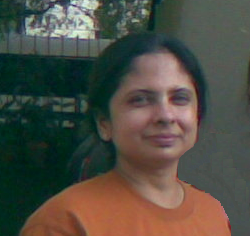
Freedom as a woman means to be able to walk on roads without constantly being on high alert against stalkers, harassers and roadside Romeos. I am okay if this freedom is given at least during the daytime to begin with! Sadly, this menace seems to have no age bar – I thought I’d be safe as I grew older but that does not seem to be the case. Freedom as a woman and a professional also means the right to have my opinions sought, listened to and valued at home and at work without being viewed through “woman-tinted filters”, and decisions taken with my opinions (if relevant) counted and, most importantly, acknowledged. It means to be able to do my job without having to imitate the behaviours of the opposite sex – working for long, unearthly hours, bonding at after-work official parties, and so on. It means having power to act and shape workplace rules and environment to harmonize with my equally important roles as a wife, a mother, a daughter and daughter-in-law.
Arti Jain
Co-founder, MerryWeddings.in and FriendsofBooks.com
New Delhi
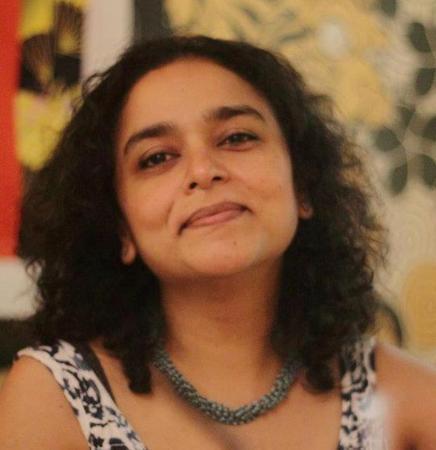
Freedom for me as a woman and a working professional is freedom from fear. The many fears that haunt the lives of women like me – fear of physical safety, fear of having to succumb to social pressures, fear of losing hard earned financial independence and the fear of losing that elusive game called ‘Balancing It All’. It is noise of these fears that distracts us and makes us lose clarity and direction. It is these fears that make us hedge when the time comes to step up and take what’s ours with pride. The ability to be fulfilled emotionally, creatively, professionally without any of these fears defines independence for me.
Yasmin Kidwai
Award-winning documentary filmmaker
New Delhi
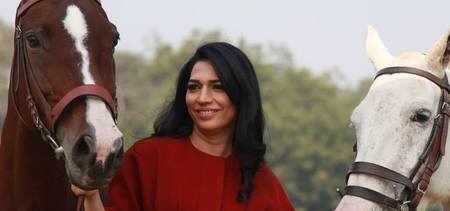
Freedom to me is essentially having choices and being able to exercise those choices. It means to be able to walk out of office when I want a cup of coffee. It means to live the choices I have made with gratitude every day – and also to have more choices to change the choices I had first made!


August 12, 2014
An interview in OnWriting.in
Kiran Manral (Goodreads, FB, twitter) a journalist turned writer based out of Mumbai. She is the author of The Reluctant Detective (2012) and Once Upon A Crush (2014). She is also the founder of India Helps, a volunteer network to help disaster victims and part of the core founding team of Child Sexual Abuse Awareness Month and Violence Against Women Awareness Month. Her parenting blog, karmickids, is among the top five parenting blogs according to blogadda and her personal blog, thirtysixandcounting is listed in the top blogs of India directory. In her spare time she can be found fighting off temptation, either from Nutella or from Up To 50 % off sales.
Her books are available on Amazon and other book stores.
Kiran’s answers to 5 questions are…
1. Why do you write? Why would someone else want to be a writer?
Why do I write? That is one of the most difficult questions to answer and I keep getting asked this over and over again. I really don’t know why I write. I write because there is nothing else I enjoy doing more. I write because the words dance in my head until I run screaming to the computer and start keying them out. I write because what other job, except acting perhaps, would allow me to be different people ever so often, and spend all my spare time on the internet in the guise of research. Seriously though, I write because I must. And if anyone reading this wants to be a writer, they must write if they must too.
2. How do you come up with an idea? Ideas for plots, sequences, scenes, characters and other things? Do you use any tools?
Ideas are very ephemeral, I start with a character and build a story around that character. I use no tools except my fingers and my keyboard, and perhaps my imagination. I also read a lot, anything and everything I can lay my hands on, and the strangest ideas, scenes, etc might pop out of something I’ve read a few days ago or years ago.
3. Do you keep a rigorous writing schedule? If yes, what is your writing schedule?
I’m at my desk 9 am to 2pm every day except weekends when I don’t touch the computer.
Edit Note: Charles Dickens’ followed the 9 to 2 schedule rigorously. He would write from 9 to 2 and then go for long walks (link)
4. How often do you get interrupted by writer’s block? How do you go about working around your writers’ block?
I don’t allow writer’s block to interrupt me. I just keep writing through it. At the worst, I will have 1000 words of which I will need to delete 500 and 500 will still be of use. If I sit back and wallow in my writer’s block I will have no words to show for the day’s worth of work and that to me is a sin.
5. What is the best advice on writing that you’ve ever received?
So many, so many. Nadine Gordimer‘s statement, “The guru of writing is reading.”
I believe I spend more time reading than writing. I read everything. I have finally conquered my OCD about completing a book no matter what and happily discard books that don’t grip me. Life is too short to waste it on books that you struggle to finish.
Then there is that very wise statement from Stephen King, by the way his book On Writing is a bible for aspiring writers, “Amateurs sit and wait for inspiration, the rest of us just get up and go to work,” he says. Treat your craft as a profession.
Think of Malcolm Gladwell‘s Outliers and the 10,000 hours of practice. You have to practice your craft, you have to hone it, work at it, refine it. You need those 10,000 hours of practice.
And finally, I recently read Cheryl Strayed in a reply to an aspiring writer. She says, “Writing is hard for every last one of us—straight white men included. Coal mining is harder. Do you think miners stand around all day talking about how hard it is to mine for coal? They do not. They simply dig.”
Therefore to me now, those words are profound, let’s not talk about how hard it is to write, just get out there and write.
Thanks Kiran for such insightful answers!
Should you have any followup questions for Kiran, please leave them in the comments box below.
- See more at: http://www.onwriting.in/kiran-manral/#sthash.ySKAUsR1.dpuf





